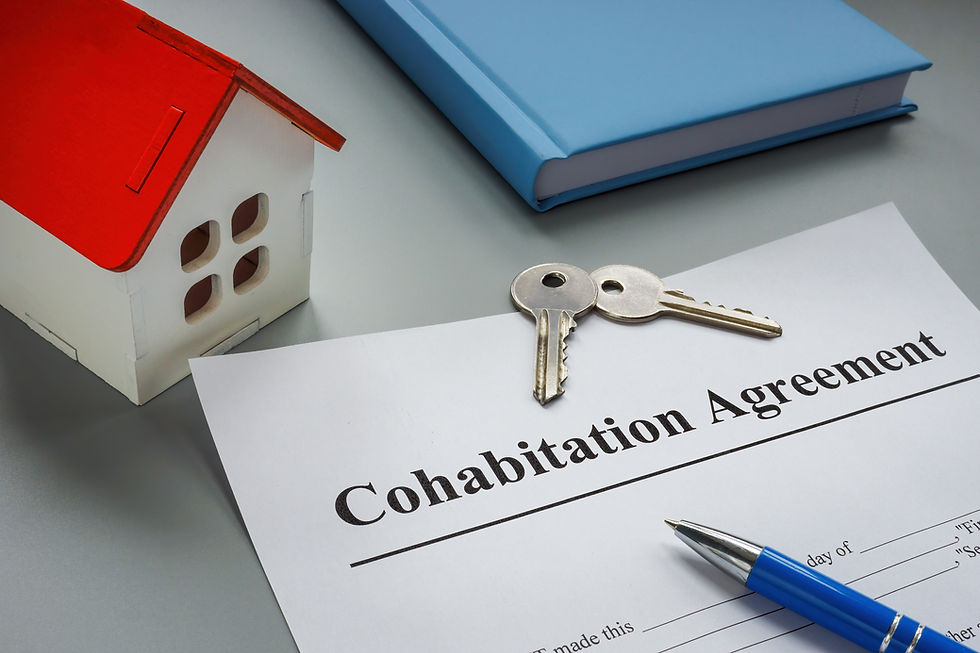Unfit parent – Losing parental responsibilities and rights
- administration9514
- Sep 16, 2021
- 3 min read
Parents do not always have full parental responsibilities in respect of their child. Some have full and some have specific responsibilities because of separation or divorce of between the parents. The responsibilities and rights include caring for the child, maintaining contact with the child, acting as guardian, and contributing towards the maintenance of the child. The question of whether a parent can maintain full or specific parental responsibilities and rights may change over time because the best interests of the child always need to be considered. This article gives an insight of when there can be a termination of these parental responsibilities and rights.
Section 28 of the Children’s Act 38 of 2005, provides for the termination, extension, suspension or restriction of parental responsibilities and rights. This provision caters for an application to be brought in the High Court where the responsible parent would request the Court to grant an order either terminating or suspending the parental responsibilities and rights of the neglecting parent. Jurisdiction in the children’s court is confirmed by s 29(1) of the Children’s Act, which states that a children’s court does have jurisdiction to hear a matter in terms of s 28, within whose area of jurisdiction the child concerned is ordinarily resident.
The effect of an application for termination of parental responsibilities and rights will either completely or partially deprive a person of their parental responsibilities and rights regarding a child meaning that person will no longer have any obligations to care for or maintain the child nor have any right to exercise contact with the child.
Section 28 of the Act, states the following:
1. ‘Termination, extension, suspension or restriction of parental responsibilities and rights – A person referred to in subsection (3) may apply to the High Court, a divorce court in a divorce matter or a children’s court for an order –
a) suspending for a period, or terminating, any or all the parental responsibilities and rights which a specific person has in respect of a child; or
b) extending or circumscribing the exercise by that person of any or all the parental responsibilities and rights that person has in respect of a child.
2. An application in terms of subsection (1) may be combined with an application in terms of section 23 for the assignment of contact and care in respect of the child to the applicant in terms of that section.
3. An application for an order referred to in subsection (1) may be brought –
a) by a co-holder of parental responsibilities and rights in respect of the child;
b) by any other person having a sufficient interest in the care, protection, well-being, or development of the child;
c) by the child, acting with leave of the court;
d) in the child’s interest by any other person, acting with leave of the court; or
e) by a family advocate or the representative of any interested organ of state.
4. When considering such application the court must consider –
a) the best interests of the child;
b) the relationship between the child and the person whose parental responsibilities and rights are being challenged;
c) the degree of commitment that the person has shown towards the child; and
d) any other fact that should, in the opinion of the court, be considered.’
It is important to note that an application for termination of a person’s parental responsibilities and rights will not be granted where it is not proven to be in the best interests of the child, as it results in a deprivation of rights of a parent or co-holder. An application in terms of s 28 is a drastic measure and should not be brought frivolously or maliciously by any party. This is the reason why a court will be slow in granting such an application, as it may be abused.
Be that as it may, in the matter of V v V 1998 (4) SA 169 (C), the court stated that ‘the child’s rights are paramount and need to be protected, and situations may well arise where the best interests of the child require that action is taken for the benefit of the child, which effectively cuts across the parents’ rights’.
Section 28 of the Children’s Act raises a constitutional issue: Is it constitutionally correct to terminate a biological father’s (or mother’s) responsibilities and rights towards his (her) child? Note how the legislature termed parental ‘responsibilities’ and then ‘rights’ as emphasis is placed on the parent’s responsibilities to the child, rather than rights towards the child.
Should you have any questions regarding the termination of parental responsibilities and rights, please do not hesitate to contact us and schedule an appointment to discuss the issue.
.png)



Comments